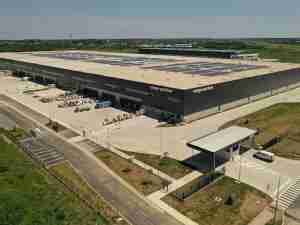Gene Gander, Vice President of Sales for CargoWise' edi, a leading provider of integrated international supply chain logistics management systems, suggests that in today's increasingly complex global business environment, the sales management process in the freight forwarding industry requires a vigorous new level of professionalism to be effective.
Unlike days gone past, the sales process within the freight forwarding industry today reflects the fact that purchasing decisions are being made increasingly at the C-level executive or board room echelon, as opposed to the old traffic manager and shipping room floor paradigms. This means that today's sales and marketing efforts require a greater degree of corporate participation, cross-departmental IT integration and advanced sales tools to support this new business model.
Gander says: 'The key to a successful sales process today is the establishment of freight-specific sales and marketing tools within a comprehensive Customer Relationship Management (CRM) application. The forwarding and logistics market is evolving into an increasingly competitive and tight margin industry that warrants a new level of professionalism well beyond that of what a single sales manager can deliver. Today, a robust, integrated CRM tool provides the best opportunity to execute the sales value proposition by communicating significant sales data to all pertinent personnel, including operations, finance and IT departments.'
Gander explains that since stand-alone CRM applications cannot offer the efficiencies and quality of an integrated sales process, the optimal solution is an ERP-like system that automates the sales process and creates management visibility throughout the supply chain, not horizontally, but vertically. This enables the sales process to flow in both directions between sales, operations and management.
Gander points out that sales management today cannot deliver in a vacuum, and suggests 10 ways companies can improve sales and operations through an integrated IT-based sales process.
- Develop a single point of contact with a customer for enhanced communications between sales and operations. If a single element of information is kept in redundant systems, it opens up quality issues and questions regarding the accuracy of sales information. Utilizing integrated information ensures cross-departmental precision and facilitates increased sales and customer service.
- Operations should avoid having a single additional element of work to accommodate just the sales process. Rather, the information from operations should flow seamlessly to the sales department. Management is then able to utilize the same, uniform information for reporting and oversight without requiring additional data entry.
- Automate the workflow with a single database. If all the intelligence that sales gather is available to operations, it not only reduces redundancy, but provides management with clear visibility across the sales team's efforts. Data quality is even more of an issue for companies than efficiency. Changing customer organization details, contacts, and procedures is an administrative nightmare with multiple data systems within a company and should be avoided.
- Provide a single CRM system for pipeline visibility. Customers and sales often dictate specialized reporting during the sales process that is required from operations. By automating your sales management system, the sales department can set up automated reporting and pull it seamlessly from operations for quality control and efficiencies. This can be better accomplished by a single solution that integrates information from both sales and operations. This also provides vastly improved customer service.
- Set up controls for customer tariffs for freight and handling. By automating this functionality within a single sales platform, the ratings are automatically transmitted to operations and warn them to utili





_-_28de80_-_d88095865f9f1cbb4ecdd37edf61c63efd603428_lqip.png)

